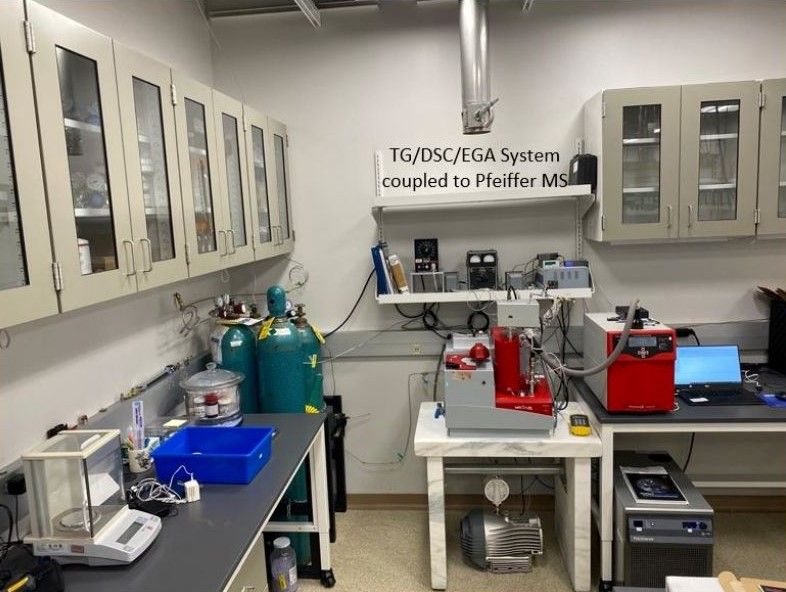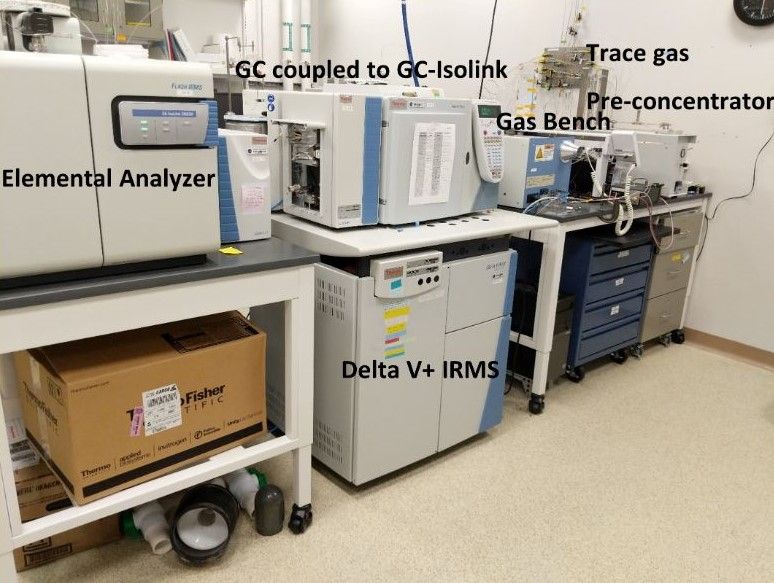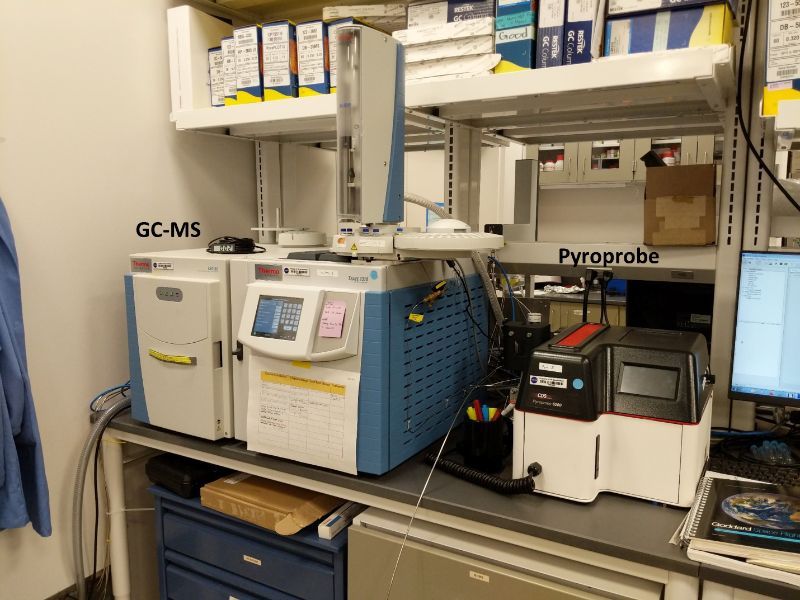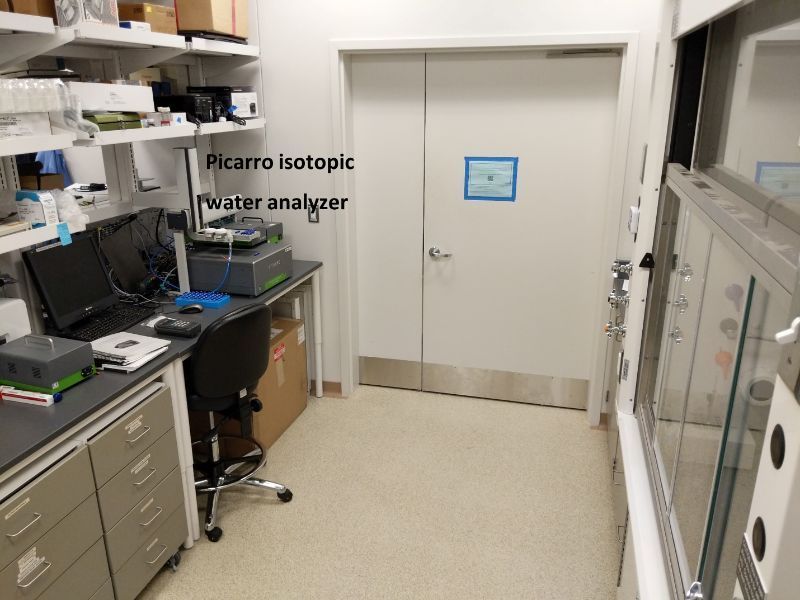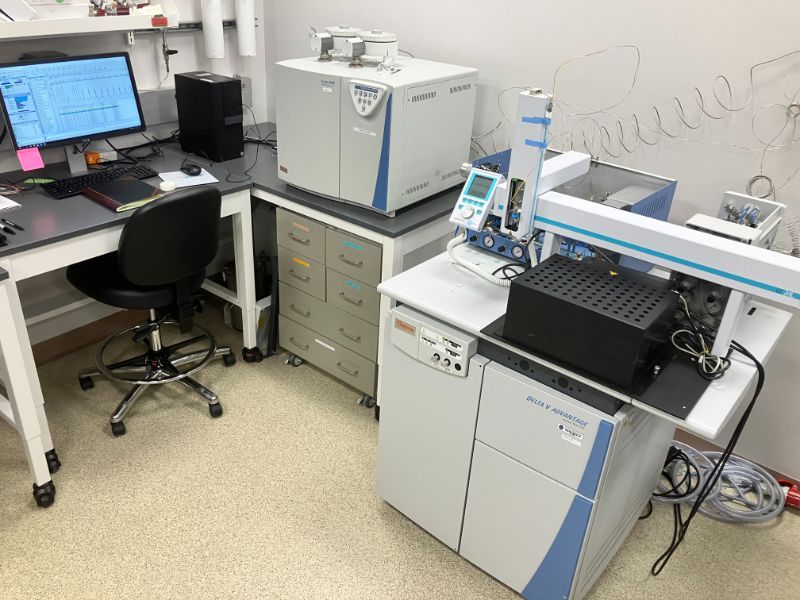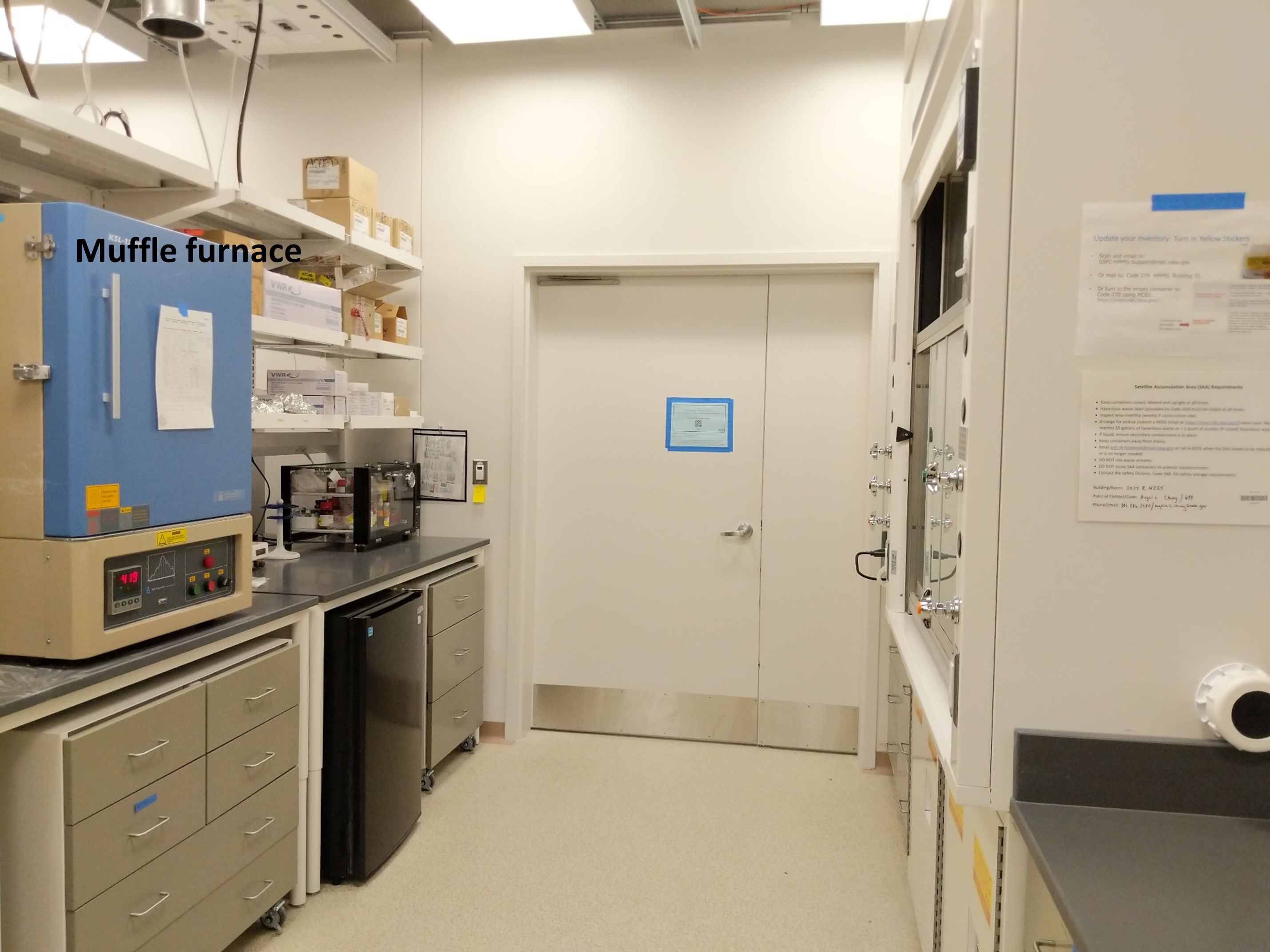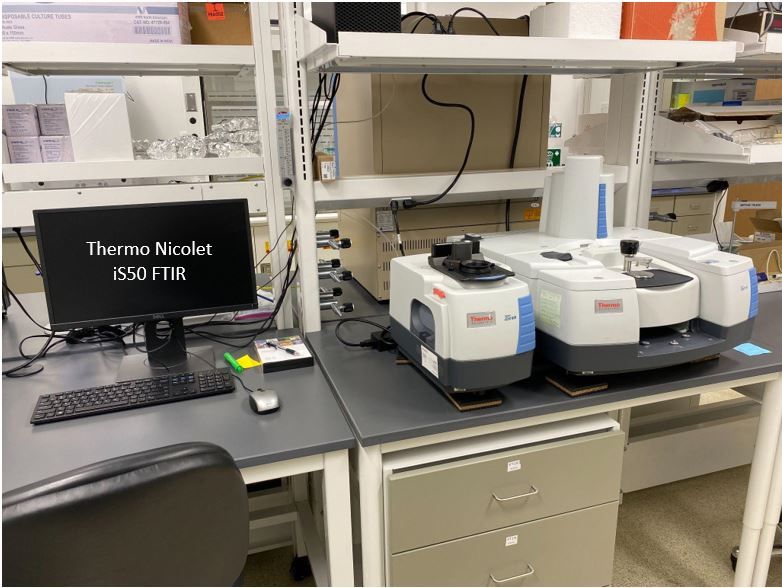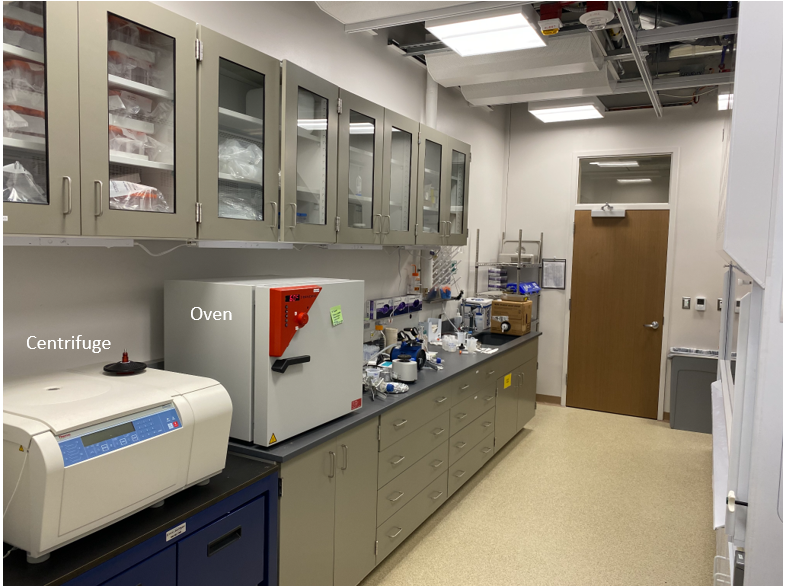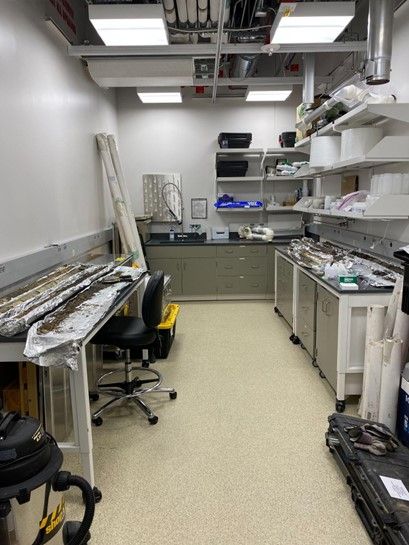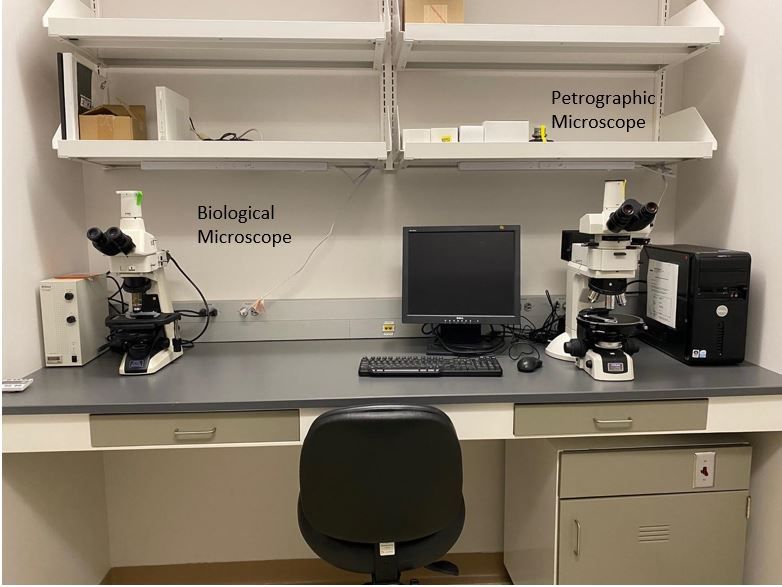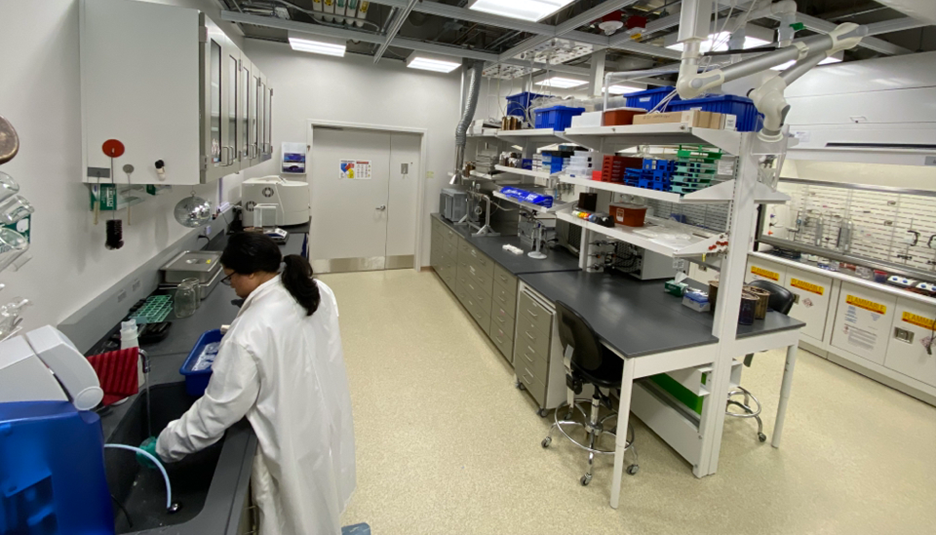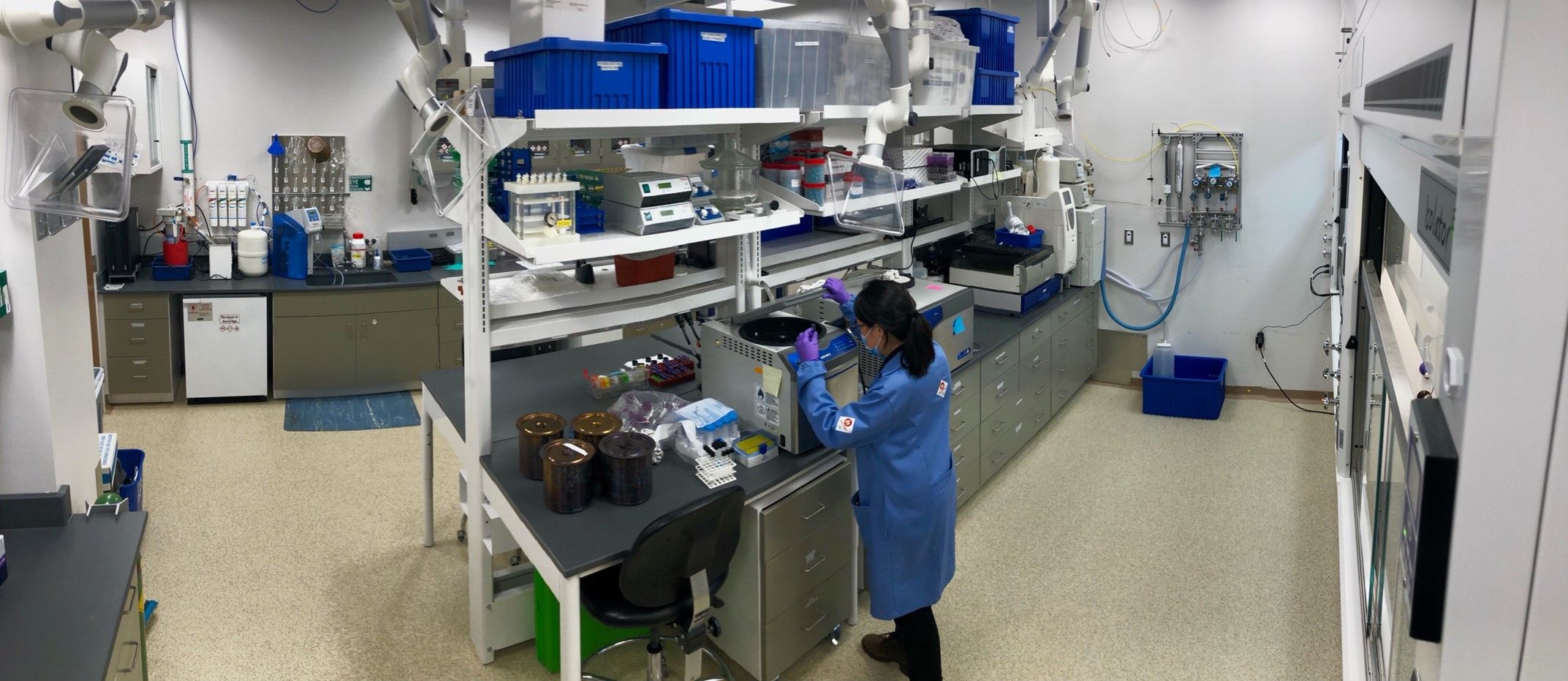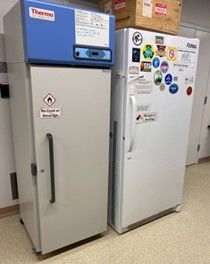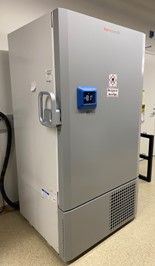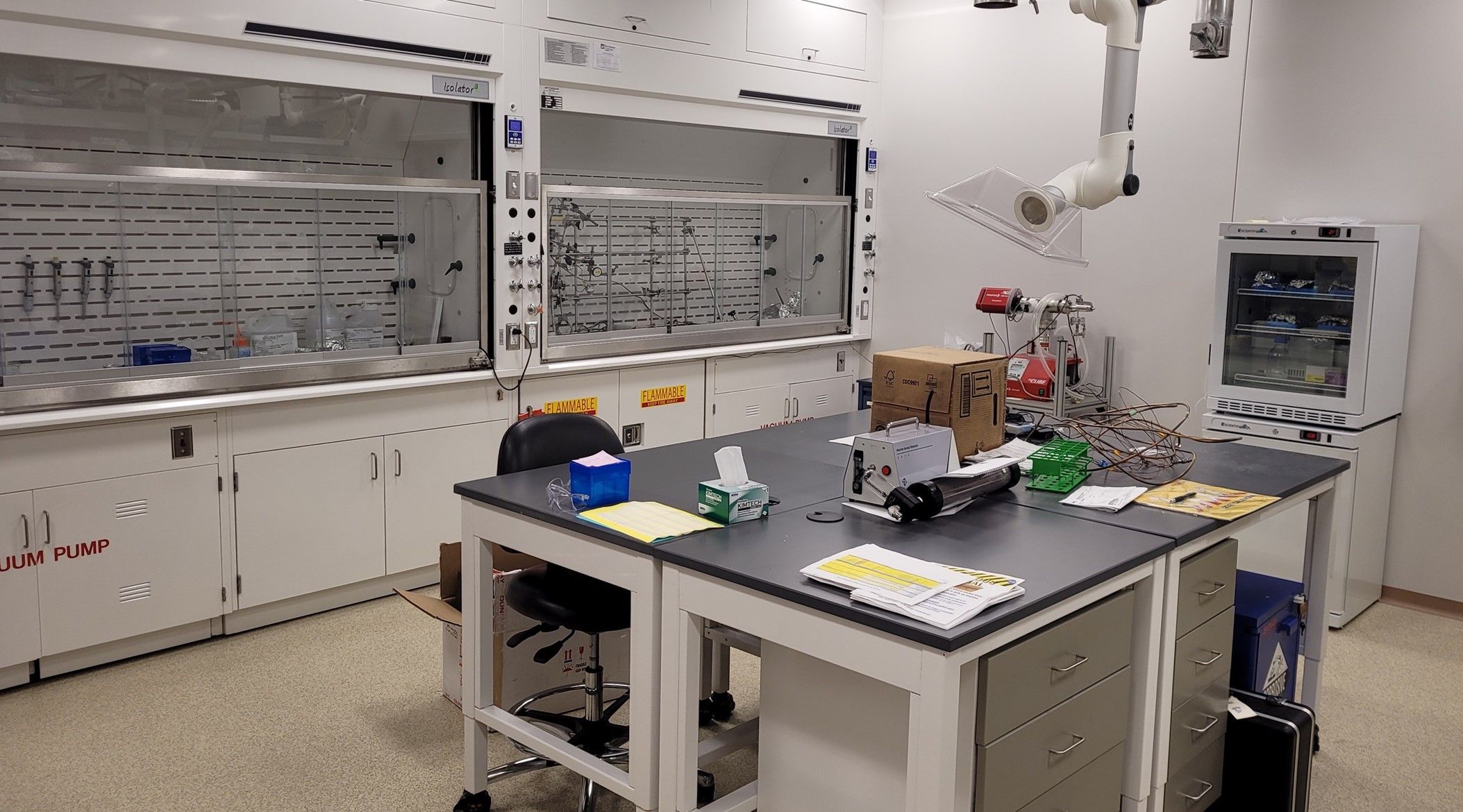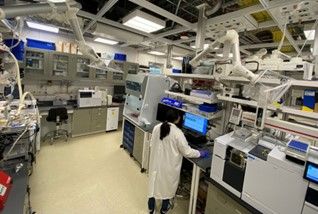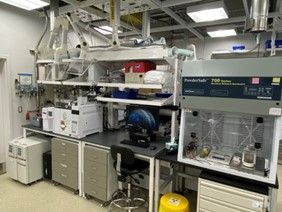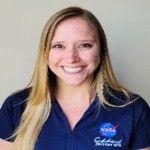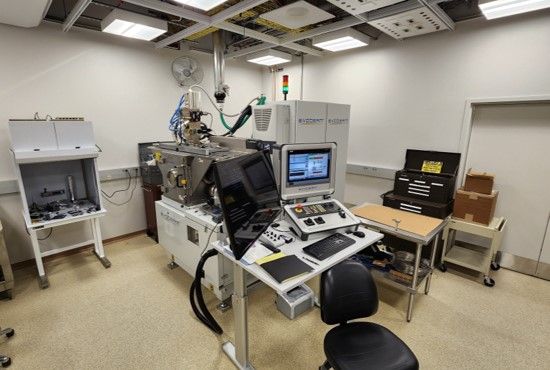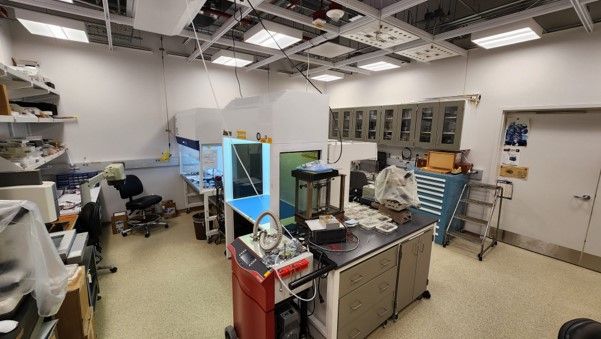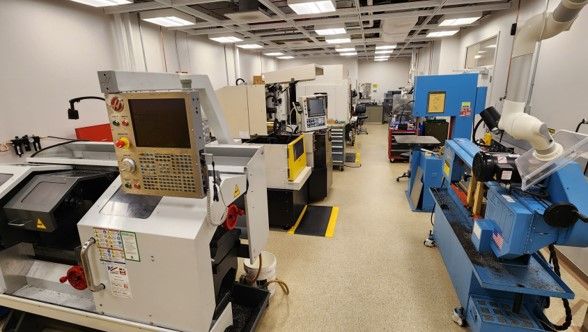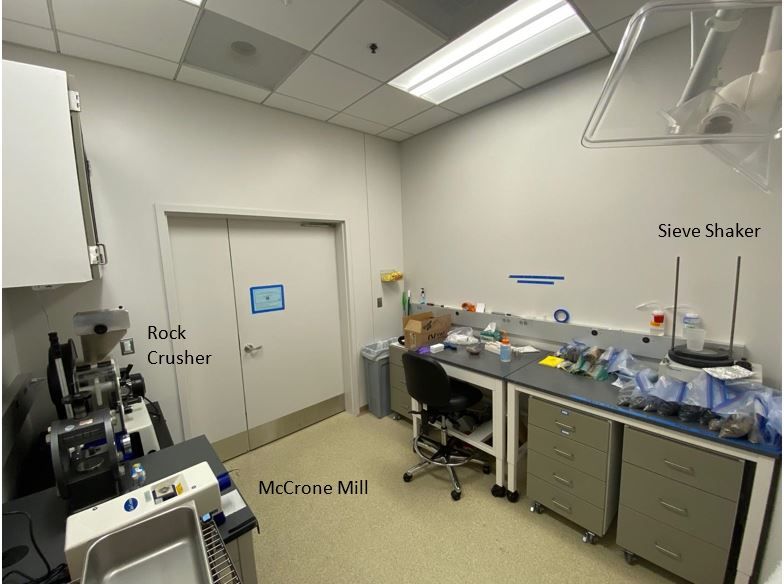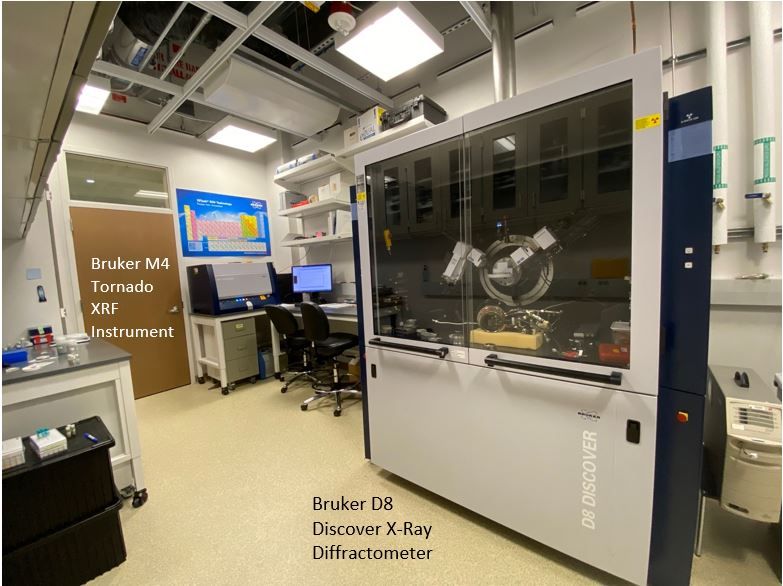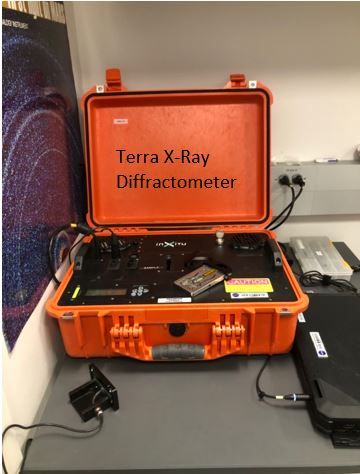Analog GCMS Laboratory
+
—
The Analog GCMS Laboratory is hosted within GSFC's Planetary Environments Laboratory (code 699) and focuses on unique preparations of organic bearing samples that simulate collection and/or processing by flight missions or mission concepts.
Equipment
The Analog GCMS Laboratory hosts the Dragonfly Mass Spectrometer (DraMS) breadboard oven and the Planetary Ice Plume Simulator (PIPS).
The Planetary Ice Plume Simulator is a compact flight tube capable of generating ice grains via electrospray and accelerating them to several km/s velocity. The PIPS flight tube is a high-vacuum, clean environment with high flexibility for interfacing with analytical instruments, collection devices, and hardware. Existing default interfaces comprise an electrometer for measuring particle size and speed, and a cryogenic collector for grain sample accumulation. The PIPS enables research on the physical and chemical properties of icy plumes and products of hypervelocity impact or generation of planetary materials (e.g., regolith) by microscopic icy grains. The PIPS will support spaceflight investigations of relatively particle-dense environments such as rings, low-altitude (cryo-) volcanic plume flybys at Io, Europa, Enceladus, or Triton, or close approaches of active comet nuclei. The PIPS is a new technology as of 2022 and is undergoing verification and validation of its operation.
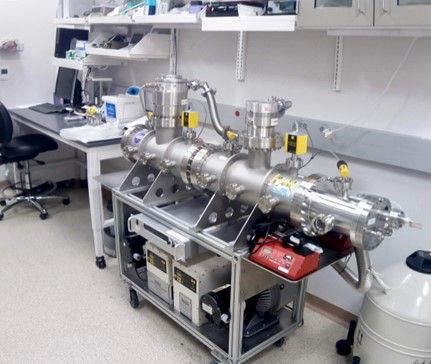
The Planetary Ice Plume Simulator (PIPS)
People

Jennifer
Eigenbrode
Lab Manager and Manager of PIPS

Marc Neveu
Science Lead of PIPS (main contact)

Melissa Trainer
Manager of DraMS breadboard oven

